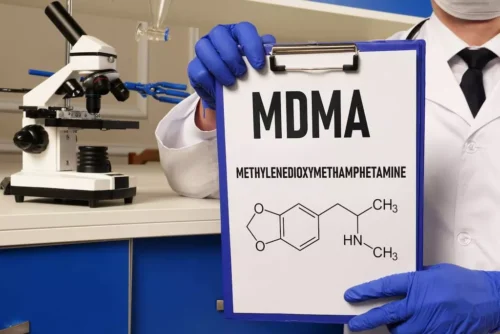In addition, newer or emerging treatments may include GLP-1s and psychedelics as well as neuromodulation (like TMS). Your body actually has several ways of detoxing itself naturally. For example, your liver breaks down toxins and elements you consume, helping eliminate them. Even your skin and lungs help your body get rid of toxins, Rudolph Bedford, MD, a gastroenterologist at Saint John’s Physician Partners, told Health. Dr. Streem says that if your goal is to stop drinking altogether, you’re more likely to have success quitting all at once, rather than weaning off alcohol.
How to Regain Trust in a Relationship After Addiction
The Centers for Disease Control and Prevention (CDC) recommends that adults get at least seven hours of sleep per night. A drink’s alcohol content can vary by the type, brand, or style of wine, beer or liquor. Find the alcohol by volume (ABV) percentage on the bottle to know how much you are drinking.
Check in with your body for signs of detox
Opting for the right foods and beverages can play a role in supporting your body’s natural detoxification process after alcohol consumption. A special test, known as the EtG test, is often given to confirm abstinence in a person who is required to maintain sobriety for legal or medical reasons. The EtG test measures a metabolite of alcohol known as ethyl glucuronide, which can be found in blood, hair, and nails, but it is typically done with a urine test. The EtG test can detect this alcohol metabolite for 3 to 5 days after consuming alcohol but does not accurately indicate if someone is currently intoxicated. The half-life of ethanol is about 4 to 5 hours, which means it takes that long to eliminate half of the alcohol ingested from the bloodstream.
How Long Do The Effects of Alcohol Last?
If your body has developed a tolerance to alcohol, completely stopping—and attempting to flush it out of your system—can lead to withdrawal. Alcohol withdrawal has a set of complex symptoms when someone abruptly stops or reduces their consumption. Remember that everyone’s body is different, and the rate at which alcohol is metabolized can vary. It’s essential to listen to your body, and prioritize your health and safety during the recovery process. Heavy drinking is defined as drinking more than an average of 2 drinks per day for men or 1 drink per day for women over a thirty-day period. Whole foods with plenty of nutrients help keep your body healthy.
The National Institute of Alcohol Abuse and Alcoholism (NIAAA) encourages medical providers to screen patients for alcohol consumption and initiate interventions aimed at harm reduction. Yale’s Joel Gelertner studied heavy drinking and compared it to lower levels of alcohol use, alcohol dependence, and relationships with mental and physical health. Habitual heavy drinking is genetically similar to AUD -an important risk for developing alcohol dependence. If you’ve been drinking heavily and/or regularly, suddenly stopping or cutting back on alcohol can cause physical and psychological symptoms of withdrawal.
Alcohol poisoning is a two-phase condition also known as ethanol toxicity. The condition occurs when you drink large amounts of alcohol that affect the organs in your body. However, this can vary somewhat based on the type of alcohol you drink, your physical health, or your genetic predisposition. Alcohol is processed in the body and removed from the bloodstream through the metabolic system (90 to 95%).
Those foods increase the risk of chronic illnesses like diabetes, heart disease, and obesity. Other research has found that detox diets do not support sustainable weight loss. You might lose weight rapidly but regain it after the detox ends.
Read more about what kind of supplements can help you recover from binge drinking. If you’ve had a drink or two, you might be wondering just how long that alcohol will stay in your system. As a community based treatment center, it’s important to us that we share helpful resources and expert content created for those who are seeking treatment or already in recovery. Metabolizing alcohol is a complex process and most ranges are “averages” rather than how long it will specifically take you to metabolize that alcohol. Amy Myers, MD is a two-time New York Times bestselling author and an internationally acclaimed functional medicine physician.Dr. Myers specializes in empowering those with autoimmune, thyroid, and digestive issues to reverse their conditions and take back their health.
- If you want the easier way, work with reputable institutions like Stonewall Institute today and start turning your life around.
- On this page, we address a common myth linked with alcohol misuse and binge drinking – that drinking water can ‘flush’ alcohol from your system.
- When recovering from alcohol intoxication, it is common for people to crave junk food.
Alcohol withdrawal treatments
- Doctors may prescribe other medications to treat withdrawal-related symptoms.
- On the flip side, the same study showed that drinking a ton of water before a test can drastically dilute the amount of alcohol that shows up.
- Having food in your stomach can slow down the absorption of alcohol while you’re drinking.
- It keeps your stomach calm and helps improve your appetite when you do not feel like eating.
Trying certain popular detox diets without a doctor’s supervision can lead to malnutrition. A sober life doesn’t have to mean how to flush alcohol out of your system in 12 hours more time at home as you try to block out triggers. It can mean more time for your other interests, and even new interests.





